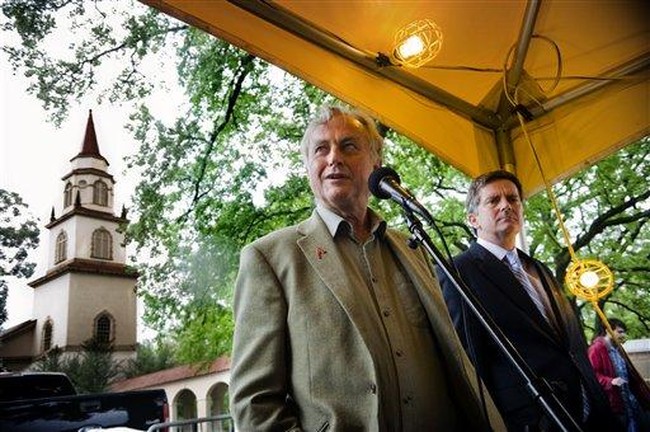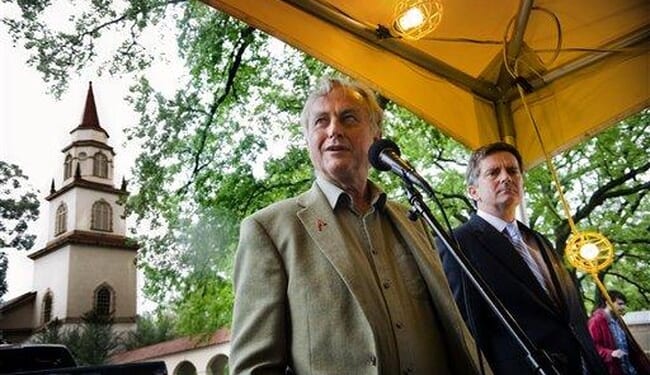
This week, famed atheist Richard Dawkins explained that he was a “cultural Christian.” Praising his civilization, Dawkins stated, “I do think that we are culturally a Christian country. I call myself a cultural Christian. I’m not a believer. But there is a distinction between being a believing Christian and being a cultural Christian. And so you know I love hymns and Christmas carols, and I sort of feel at home in the Christian ethos. I feel that we are a Christian country in that sense.” Dawkins went on to praise Christianity as a “fundamentally decent religion in a way that I think Islam is not.”
Dawkins’ case for Christianity — a case made on the basis of utility — is nothing new. It was made long ago by acidic critic of the church Voltaire, who famously averred, “If God did not exist, it would be necessary to invent him.” But the problem with the utilitarian case for religious belief is that it doesn’t animate religious believers. It is simply impossible to build a civilization on the basis of Judeo-Christian foundations while making the active case as to why those foundations ought to be dissolved.
In fact, Western civilization has doomed itself so long as it fails to reconnect to its religious roots. Philosopher Will Herberg wrote, “The moral principles of Western civilization are, in fact, all derived from the tradition rooted in Scripture and have vital meaning only in the context of that tradition. … Cut flowers retain their original beauty and fragrance, but only so long as they retain the vitality that they have drawn from their now severed roots; after that is exhausted, they wither and die. So with freedom, brotherhood, justice and personal dignity — the values that form the moral foundation of our civilization. Without the life-giving power of the faith out of which they have sprung, they possess neither meaning nor vitality.”
We are a cut flowers civilization.
And eventually, cut flowers die.
That has never been more obvious than this week, when the Biden administration decided to honor the newly invented Transgender Day of Visibility on Easter Sunday. Gender ideology is a symptom of our society’s reversion to gnostic paganism, in which unseen, chaotic forces buffet us about, and in which nature is directly opposed to the freedom of our disembodied essences. It is no wonder that gender ideology is opposed by every mainstream traditional religion.
Yet claiming that this magical holiday could not be moved, the White House issued a variety of statements in celebration of radical gender ideology, including the deeply insulting statement from the president of the United States citing the book of Genesis to the effect that transgender people are “made in the image of God” — ignoring the last half of the Biblical verse, which reads, “male and female he made them.” What better time than Easter, the holiest day in the Christian calendar, to pay homage to an entirely new religion?
Richard Dawkins is obviously correct that a civilization rooted in church is better than a civilization rooted in an alternative set of values. But in reality, the churches cannot be empty; they must be full. The cathedrals that mean Britain to Dawkins must ring with the sounds of hymns in order to maintain their holiness and their importance; otherwise, they are merely beautiful examples of old architecture, remnants of a dead civilization preserved in stone.
But our civilization must live. And that means more than cultural Christianity. It means reengaging with the source of our values — the Scriptures that educated our fathers and grandfathers.












